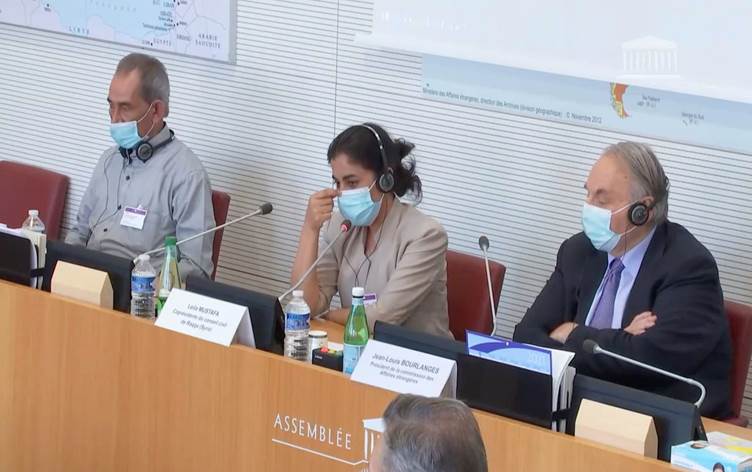ERBIL, Kurdistan Region — France is concerned about the future of northeast Syria (Rojava) and will “do a lot” to ensure its place in a peaceful Middle East, the head of the French parliament’s foreign affairs committee told a visiting delegation in Paris on Wednesday.
The Rojava delegation – which includes the deputy co-chair of Rojava’s Executive Council Hamda al-Abd and co-chair of Raqqa Civil Council Layla Mustafa, arrived in the French capital on Monday and will stay until June 11, according to the North Press Agency (NPA).
“We are very conscious of what the Kurds have done in the fight for freedom, for democracy, for your values, in recent years. Today, your situation is more precarious, especially since the withdrawal of US forces. We are very concerned about your future. We want to do a lot. We want to do a lot so you have your place in a peaceful Middle East,” Jean-Louis Bourlanges told the Rojava officials.
“I am sympathetic to the Kurdish cause. It’s a complicated affair, but I believe you represent the permanence, the persistence of the Kurdish people, who have never had, throughout history … the possibility to develop as you have the right to,” he added.
Delegations from Rojava have visited France several times in the past.
Abd told NPA on Wednesday that they called for their inclusion in the political process in Syria during the meeting with French MPs. She also asked for “international support for reconstruction and the establishment of development projects to eliminate unemployment and provide humanitarian support to the refugee camps in northeastern Syria.”
Rojava, like other parts of Syria, is suffering from a financial crisis, and is home to several IDP camps. The presence of more than 60,000 ISIS-affiliated individuals in the notorious al-Hol camp has been a headache for the Kurdish administration.
Abd said France’s position has been “clear from the beginning” regarding their struggle in Syria and thanked the government and people of France for their support.
The Autonomous Administration of North and East Syria (NES), or Rojava, has been deprived of political process in Syria and has been banned from all committees formed to reshape the country’s governance – thanks to pressure from Turkey, which considers the SDF a terrorist group due to perceived links with the Kurdistan Workers’ Party (PKK).
Ankara, which has thorny relations with France, has slammed its NATO ally for its support for Kurds in Syria.

